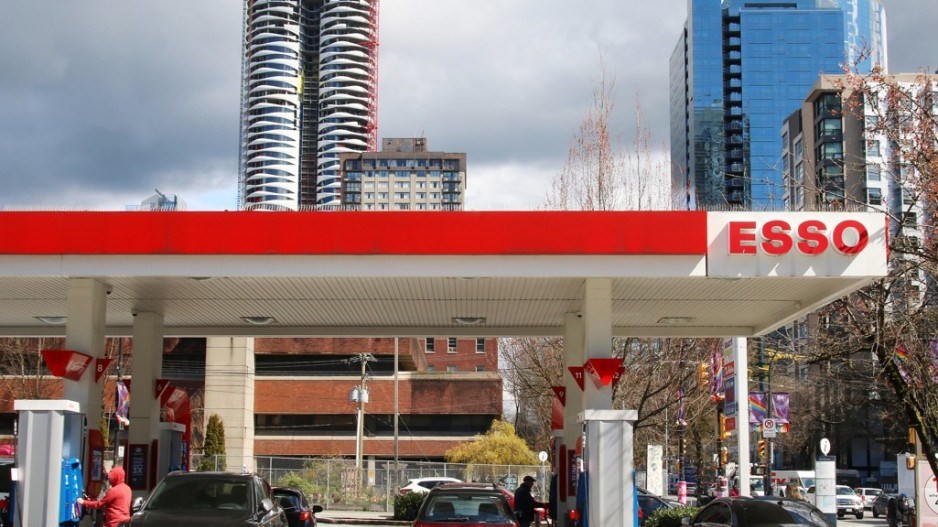Business
Energy Price Drop Masks Underlying Inflation Trends in B.C.

British Columbia’s inflation rate experienced a notable decline in July 2024, settling at 1.7%, matching the national average and down from 2.1% in June. This decrease was largely influenced by a significant drop in energy prices, which fell by 8.5% year-over-year, including a 12.1% reduction in gasoline prices. The removal of the consumer carbon tax, which is expected to continue until April 2025, played a pivotal role in these price changes.
Despite the overall decline in inflation rates, food prices in British Columbia showed a contrasting trend. In July, food prices increased by 3.4% annually, up from 3.1% in June. This rise was predominantly driven by a 10.1% surge in fish and seafood prices and a 5.6% increase in meat prices, factors that partly reflect Canada’s retaliatory tariffs. Housing costs also saw a slight uptick, with an increase of 0.1% percentage points, bringing the total to 2.7% in July.
Mixed Signals in Retail and Transportation Sectors
In the housing market, rent inflation surged to 4.8%, a rise from 3.6%, countering the effects of lower home values and mortgage interest rates. Transportation costs demonstrated a significant decline, with inter-city transport prices falling for the twelfth consecutive month by 7.5%, and public transportation costs dropping 3.6%. Meanwhile, prices for clothing and footwear remained stable, with inflation for household furnishings and equipment slowing to 0.7% from 1.8%.
The overall inflation for goods decreased to 0.7% in July, down from 1.3% in June. Durable goods inflation fell to 2.6%, while prices for semi-durable goods decreased by 0.9%. The cost of services also exhibited slower growth, rising by 2.4% compared to 2.7% the previous month.
Canadian retail sales experienced a robust increase of 1.5% in June, reaching $70.2 billion, following a decline in the previous month. Preliminary estimates suggest a minor slowdown in July. In British Columbia, unadjusted retail sales surged by 10.2% compared to June 2024, with year-to-date sales up 7.0%. Most retail subsectors reported higher year-over-year sales, with gasoline stations being the exception due to lower fuel prices.
The most significant gains were noted in motor vehicle and parts dealers at 25.3%, followed by sporting goods at 26.3%, and building materials and garden supplies at 12.6%. Sales at health and personal care retailers rose by 11.4%, while food and beverage sales increased by 2.8%. In the Vancouver metro area, sales rose by 2% month-over-month (seasonally adjusted) and 12% year-over-year (unadjusted).
Bryan Yu, chief economist at Central 1, highlights that while the drop in energy prices has contributed to a decrease in the inflation rate, the rising costs of food and housing present a more complex inflation narrative in British Columbia.
-

 Politics4 weeks ago
Politics4 weeks agoSecwepemc First Nation Seeks Aboriginal Title Over Kamloops Area
-

 World5 months ago
World5 months agoScientists Unearth Ancient Antarctic Ice to Unlock Climate Secrets
-

 Entertainment5 months ago
Entertainment5 months agoTrump and McCormick to Announce $70 Billion Energy Investments
-

 Science5 months ago
Science5 months agoFour Astronauts Return to Earth After International Space Station Mission
-

 Lifestyle5 months ago
Lifestyle5 months agoTransLink Launches Food Truck Program to Boost Revenue in Vancouver
-

 Technology3 months ago
Technology3 months agoApple Notes Enhances Functionality with Markdown Support in macOS 26
-

 Lifestyle3 months ago
Lifestyle3 months agoManitoba’s Burger Champion Shines Again Amid Dining Innovations
-

 Top Stories2 months ago
Top Stories2 months agoUrgent Update: Fatal Crash on Highway 99 Claims Life of Pitt Meadows Man
-

 Politics4 months ago
Politics4 months agoUkrainian Tennis Star Elina Svitolina Faces Death Threats Online
-

 Sports5 months ago
Sports5 months agoSearch Underway for Missing Hunter Amid Hokkaido Bear Emergency
-

 Politics5 months ago
Politics5 months agoCarney Engages First Nations Leaders at Development Law Summit
-

 Technology5 months ago
Technology5 months agoFrosthaven Launches Early Access on July 31, 2025



















